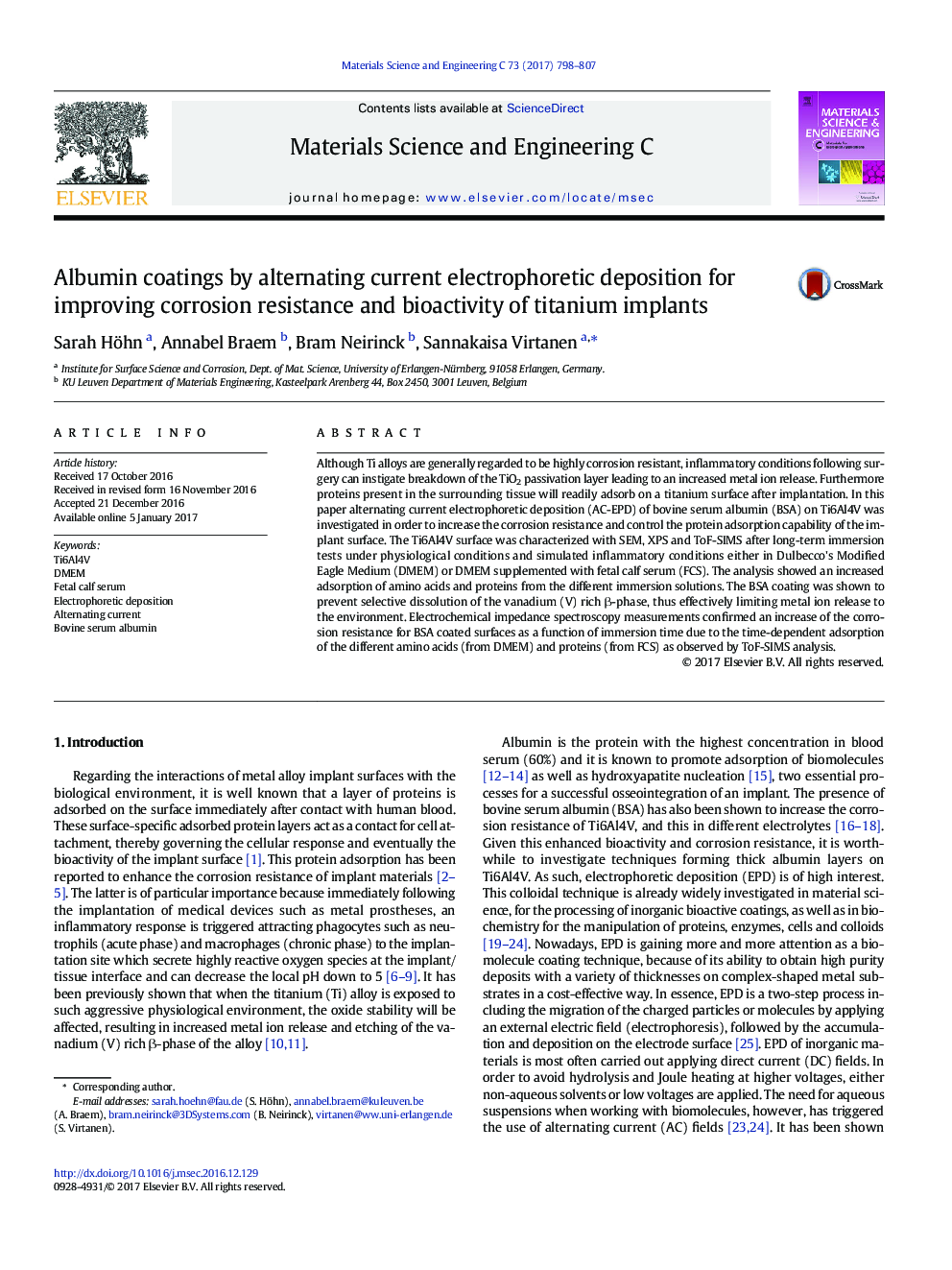| کد مقاله | کد نشریه | سال انتشار | مقاله انگلیسی | نسخه تمام متن |
|---|---|---|---|---|
| 5434988 | 1509148 | 2017 | 10 صفحه PDF | دانلود رایگان |
- Alternating current electrophoretic deposition (AC-EPD) of bovine serum albumin was investigated on Ti6Al4V.
- The surface was characterized with SEM, XPS and ToF-SIMS after long-term immersion tests at pH 7 and pH 5.
- The analysis showed an increased adsorption of amino acids (DMEM) and proteins (DMEM + FCS).
- BSA was shown to prevent dissolution of the β-phase, limiting metal ion release and increase of corrosion resistance.
- Ratios calculated by means of ToF-SIMS show that the protein will have different orientations during adsorption.
Although Ti alloys are generally regarded to be highly corrosion resistant, inflammatory conditions following surgery can instigate breakdown of the TiO2 passivation layer leading to an increased metal ion release. Furthermore proteins present in the surrounding tissue will readily adsorb on a titanium surface after implantation. In this paper alternating current electrophoretic deposition (AC-EPD) of bovine serum albumin (BSA) on Ti6Al4V was investigated in order to increase the corrosion resistance and control the protein adsorption capability of the implant surface. The Ti6Al4V surface was characterized with SEM, XPS and ToF-SIMS after long-term immersion tests under physiological conditions and simulated inflammatory conditions either in Dulbecco's Modified Eagle Medium (DMEM) or DMEM supplemented with fetal calf serum (FCS). The analysis showed an increased adsorption of amino acids and proteins from the different immersion solutions. The BSA coating was shown to prevent selective dissolution of the vanadium (V) rich β-phase, thus effectively limiting metal ion release to the environment. Electrochemical impedance spectroscopy measurements confirmed an increase of the corrosion resistance for BSA coated surfaces as a function of immersion time due to the time-dependent adsorption of the different amino acids (from DMEM) and proteins (from FCS) as observed by ToF-SIMS analysis.
Journal: Materials Science and Engineering: C - Volume 73, 1 April 2017, Pages 798-807
